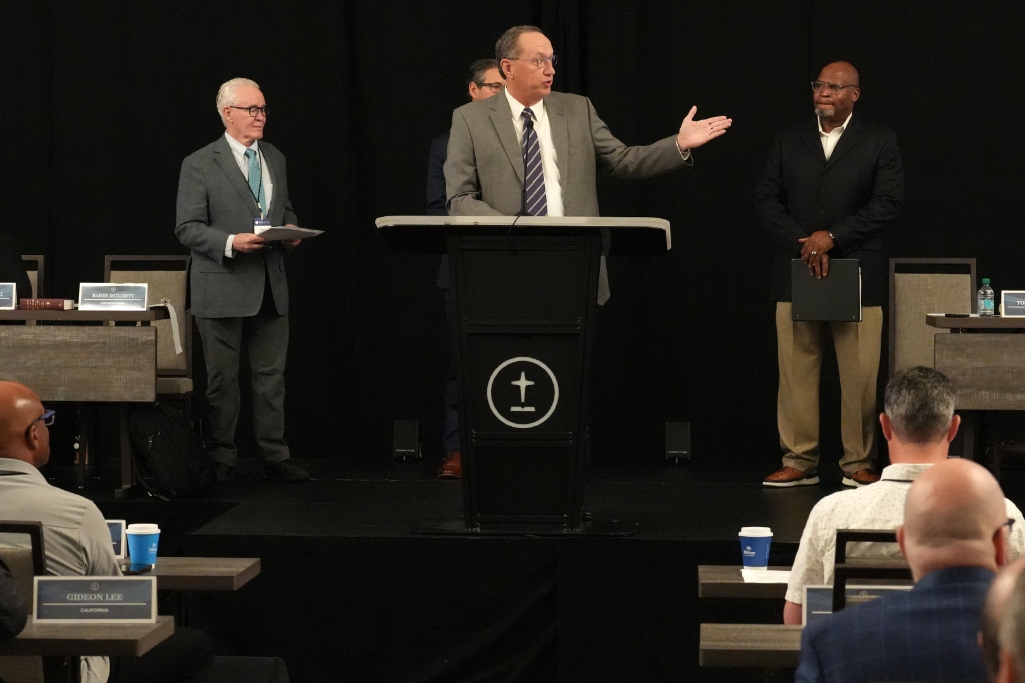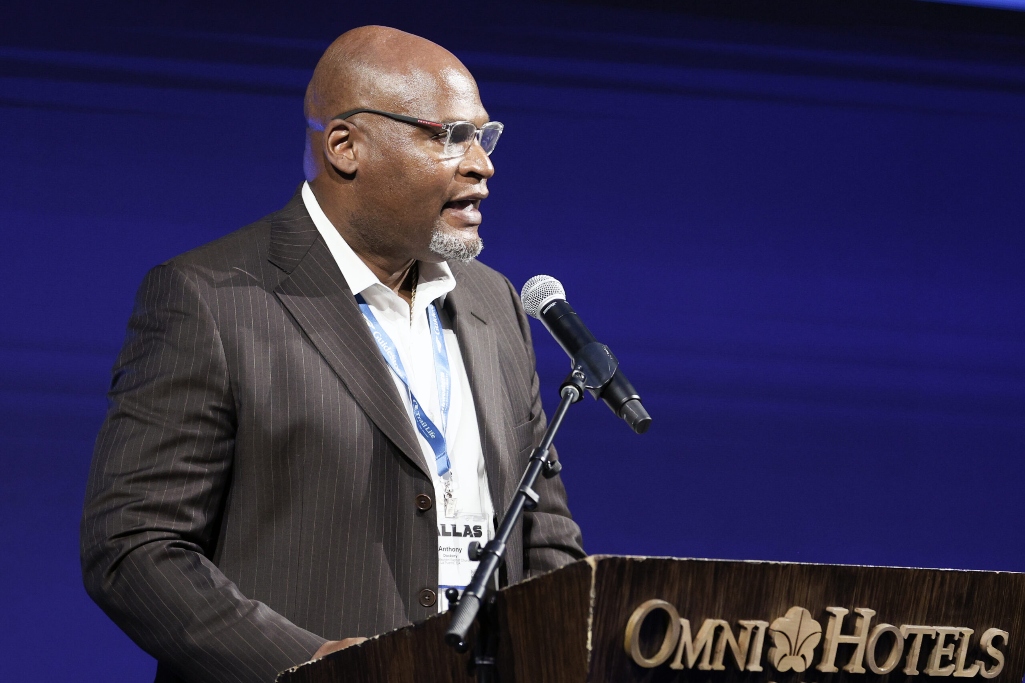
Jeff Iorg, SBC president and CEO, responds to a question during the EC's meeting in Nashville Sept. 23.
NASHVILLE (BP) — The Southern Baptist Convention (SBC) Executive Committee (EC) members discussed the potential merits and risks of filing countersuits in cases with fraudulent claims of EC responsibility at their fall meeting on Sept. 23.
The conversation came from a motion at June’s SBC annual meeting that instructed the SBC’s legal counsel to countersue former SBC President Johnny Hunt to recover legal fees incurred defending a suit Hunt filed against the SBC. The EC officers made a recommendation to decline, which the larger EC body affirmed.
The vote wasn’t unanimous, though. EC member Dani Bryson, a Tennessee attorney, came forward prior to the vote to express “some pause that we would pass this through with no discussion.
“I understand the recommendation to decline,” she said. “I can see both sides of the issue.” However, she added, “I think there is some merit in our committee considering this moving forward.”
One legal strategy recommended “vigorously defend(ing) the Executive Committee by all legal means,” said Bryson, adding that she was paraphrasing. “… I think we should look at the cost-benefit of countersuing here.”
That step would not primarily be a financial one, she explained.
“I don’t think that is a ground on which to make a decision here. I think there is a moral cost-benefit in standing up for what is right. And I think that has merit here beyond financial benefit.”
Many referrals from the SBC Credentials Committee dealing with churches that fail to align with the SBC’s “faith and practice” stem from “churches that do not deal with these problems,” Bryson said, and “there is no small potential for future lawsuits.
“I think we, in our fiduciary capacity, need to look at standing up for the Executive Committee and for the SBC to discourage those future suits, if there is no merit,” she said.
EC member David Sons asked for clarification on the status of the Hunt lawsuit, the only ongoing part of which relates to a social media post by former SBC President Bart Barber.
“We have no idea how long this matter will take to resolve,” said EC President Jeff Iorg. “So, to decide not to decide today is not to put it off until (the) February (EC meeting). We may be delayed for two or three years. It’s simply to leave it open-ended.”
Iorg called on Robert Pautienus, EC counsel, to explain two other issues.
“(Filing would) be governed by Tennessee law. So, it’s not a countersuit; it’s a new lawsuit,” he said. “You cannot file a lawsuit until all the legal matters are done … (so) what’s in the motion could not be done.”
Second, Pautienus added, future lawsuits would be considered a “malicious prosecution claim, which generally are not very easy to maintain because you have to show there was zero merit. In other words, a judge has to believe there was zero basis to file anything. Those are hard to maintain and (legal costs) would be paid by the hour.”
For those reasons, as well as the fact that nothing could be filed before the resolution of the Hunt case, he recommended not to file anything.
The discussion included 1 Corinthians 6’s instructions on lawsuits among believers. EC member Harold Philips said the passage prompted him when he was in Maryland to advise his then-state executive, Will McRaney, against bringing a lawsuit against the North American Mission Board (NAMB). An appeals court recently ruled in NAMB’s favor in the case.
“We (the SBC) have yet to pick up a hammer and go after somebody,” said Philips. “If we let the Lord handle it, He’ll fight for us.”
Iorg expressed “profound reservations about violating 1 Corinthians 6 and suing any other believer for any purpose in a civil manner.
“I’m not saying it can’t be done,” he said. “… (The SBC) has not taken aggressive action … in this matter. And I just have profound reservations about doing so at any time.”
(EDITOR’S NOTE — Scott Barkley is chief national correspondent for Baptist Press.)


